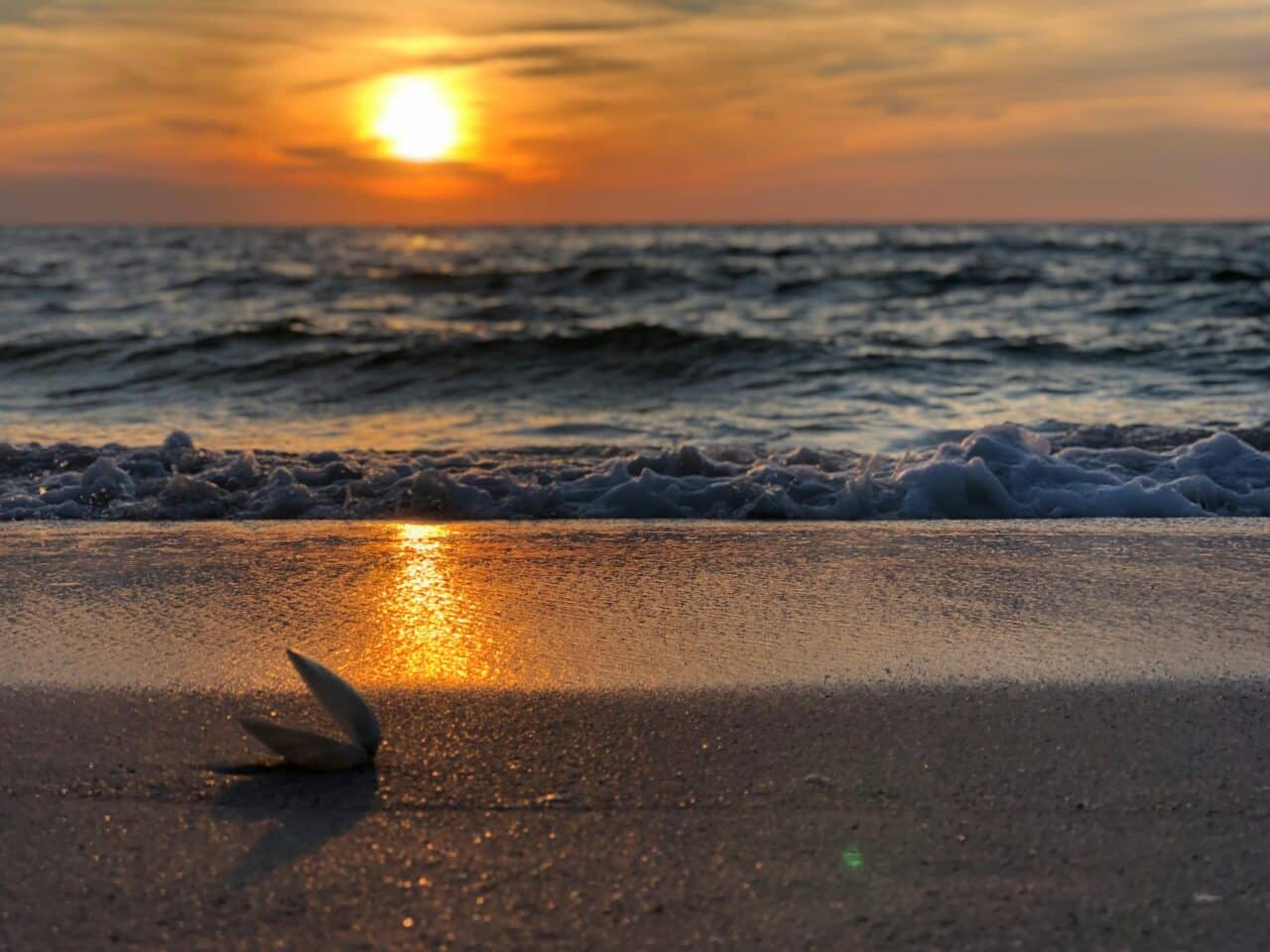If you’re one of the millions of people in the U.S. who wear hearing aids, then you know that water and hearing aids don’t mix. So, how does this affect your plans for a beach day?

At the beach, there are a few hazards you need to be aware of and plan for accordingly:
- Water
- Sand
- Sun
- Humidity
- Sunscreen
All of these things can damage your hearing aids, so let’s discuss some routines to follow to ensure your beach day is enjoyable and successful.
Before You Go
- Understand your hearing aid. While there’s no such thing as a 100% waterproof hearing aid, some models are more resistant than others. Know the limitations of your model before you expose it to the potential hazards at the beach.
- Use protective covers. There are hearing aid covers, sleeves and sweatbands available to provide extra protection from the elements, such as moisture and sand.
- Remove your hearing aids when you apply sunscreen. The sunscreen’s oils and chemicals can clog vents and microphones, affecting functionality. Make sure you wash your hands thoroughly before putting your hearing aids back in.
At the Beach
- Don’t wear your hearing aids in the water. If you plan on swimming, take your hearing aids out. Take them out even if you only plan on wading with your feet in the water; you never know when a wave could splash you or knock you down.
- Be mindful of sand. Sand grit can easily enter crevices in your hearing aid—like vents, ports and seams—and cause significant damage. Don’t touch your hearing aids with sandy hands, and if you take them out, make sure they’re stored somewhere the sand can’t reach.
- Protect your hearing aids from the direct sun. Direct sun exposure can cause the unit to heat up significantly, which can damage the battery and other components. Wear a wide-brimmed hat or sit under an umbrella to keep your ears in the shade.
After You Leave
- Clean your hearing aids. Remove any sand or moisture with a brush or tool, paying special attention to ports and openings.
- Use a dehumidifier. Even if you didn’t wear your hearing aids in the water, if the air was humid, there’s still a risk of moisture damage. Use a drying kit or dehumidifier to thoroughly dry your hearing aids.
- Inspect for damage. If you notice any damage or if your hearing aids don’t sound right over the next few days, make an appointment with your hearing health care provider as soon as possible.
If you need your hearing aid serviced or have any questions, call Kampsen Hearing today. Have a great beach day!